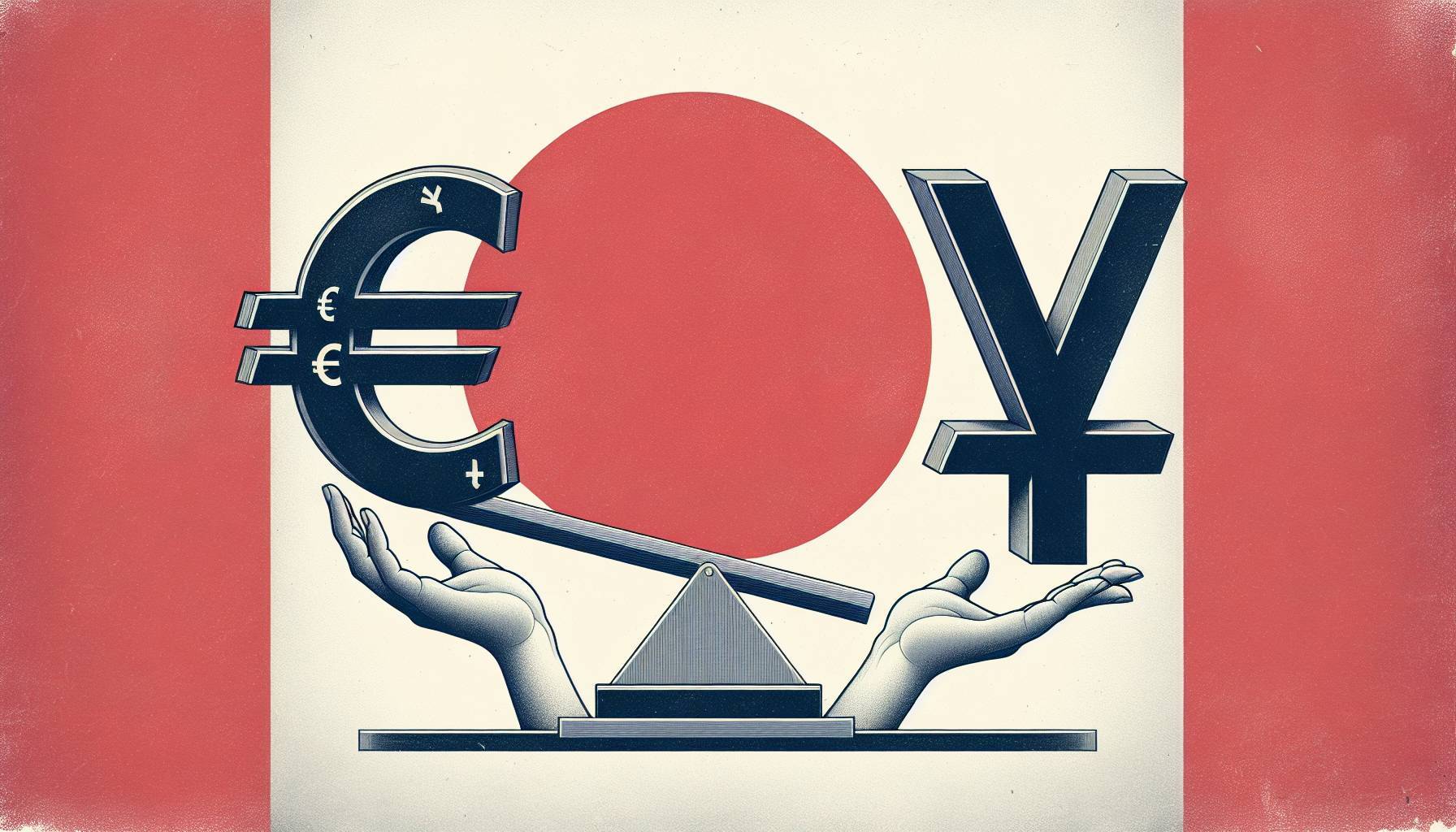The EUR/JPY pair traded above the 164.00 mark during early European trading on Tuesday, partly due to comments about potential intervention from Japanese authorities.
Despite the continued contracting yield differentials, the pair remained well bid, suggesting a lively interest from buyers.
The positive sentiment surrounding the euro and possible interventions from the Bank of Japan propped the pair above the 164.00 level.
The strength in the pair could also be attributed to widespread weakness in the yen, which fell against all of its major rivals.
In the afternoon, traders eagerly waited for fresh cues from economic data and central banks to dictate the pair’s next direction.
Investors are also keenly watching geopolitical developments and risk trends, which may further influence the EUR/JPY dynamics in the coming sessions.
The pair made small gains as the European session commenced, reaching around 164.10. This was also influenced by the anticipatory tension towards the release of the Tokyo Consumer Price Index (CPI) for March, scheduled for this Friday.
As investors remained cautious, the duo cautiously hovered in the vicinity of 164.10 throughout the day. The market showed considerable anticipation for the Tokyo Consumer Price Index (CPI), slated for announcement later this week.
Everyone was eager to see whether the data would meet, exceed, or fall short of expectations. The data from the Tokyo CPI for March could greatly affect the future trajectory of the pair.
If the data exceeds expectations, the pair could experience a notable surge in value. Conversely, if the statistics fall short, it might cause a drop in their value.
It’s important to note, however, that this situation is highly volatile, and the pair’s performance could sway in any direction. It underlines the importance for investors to stay informed and flexible in their strategies.
Despite the Bank of Japan’s (BoJ) interest rate hike last week, the first in fifteen years, the Japanese Yen has been in decline.
Japanese intervention impacts EUR/JPY trades
Vice Minister for International Affairs, Masato Kanda, has responded by pledging to battle the significant weakness of the Yen, which could pose a hindrance to the EUR/JPY pair’s upward movement.
Market analysts continue to keep a close watch on the Yen’s performance, forecasting potentially further depreciation in light of the BoJ’s recent policy decisions. With escalating economic concerns, Japan’s monetary authorities face a challenging task of curbing the country’s economic imbalance, especially the skewing exchange rate of EUR/JPY.
The impact of these economies’ intertwined dynamics reaches far beyond Japan’s borders. A destabilized Yen has a potential knock-on effect on global finance, presenting a risk to the fragile economic recovery seen worldwide post-pandemic. The international community eagerly anticipates the BoJ’s next steps in managing the Yen’s devaluation.
Traders are beginning to anticipate a rate cut due to the Swiss National Bank’s actions last week, and the likelihood of this possibility was reinforced by ECB’s Fabio Panetta, who stated that the decreasing inflation rates were prompting the central bank towards considering an interest rate cut.
This potential rate cut is expected to buoy up the market, leading to price shifts in key commodities, such as gold and oil. This is contingent on a multitude of factors, including investor sentiment and the global macroeconomic landscape.
Economic pundits are also keeping a keen eye on indicators, such as the unemployment rate, GDP growth, and consumer price index, as these factors could influence the central bank’s final decision regarding the interest rate cut.
The global economic stage remains unpredictable and as such, traders are advised to incorporate these developments into their investment strategies diligently to brace for any potential changes in the market.
On the other hand, consumers may benefit from lower borrowing costs, if the proposed rate cut comes into effect. However, savers would be negatively impacted, receiving lower returns on their deposits.













